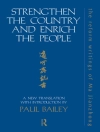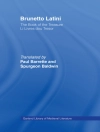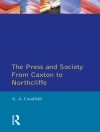This collection explores some of the many ways in which sanctity was closely intertwined with the development of literary strategies across a range of writings in late medieval Britain. Rather than looking for clues in religious practices in order to explain such changes, or reading literature for information about sanctity, these essays consider the ways in which sanctity – as concept and as theme – allowed writers to articulate and to develop further their ‘craft’ in specific ways. While scholars in recent years have turned once more to questions of literary form and technique, the kinds of writings considered in this collection – writings that were immensely popular in their own time – have not attracted the same amount of attention as more secular forms.
The collection as a whole offers new insights for scholars interested in form, style, poetics, literary history and aesthetics, by considering sanctity first and foremost as literature
Tabela de Conteúdo
Introduction: sanctity as literature – Eva von Contzen
1. St Margaret and the literary politics of Scottish sainthood – Kate Ash
2. Good knights and holy men: reading the virtue of soldier-saints in medieval literary genres – Andrew Lynch
3. Englishing the saints in Robert Mannyng’s Handlyng Synne – Kate Greenspan
4. Modeling holiness: self-fashioning and sanctity in late-medieval English mystical literature –
Jessica Barr
5. Body and soul: from doctrine to debate in medieval Welsh and Irish literature – Helen Fulton
6. Chaucer and hagiographic authority – Jennifer L. Sisk
7. Reading classical authors in Capgrave’s Life of St Katherine – Sarah James
8. Lydgate’s saintly poetics – Anke Bernau
9. Narrating vernacular sanctity: the Scottish Legendary as a challenge to the ‘literary turn’ in fifteenth-century hagiography – Eva von Contzen
10. Reforming sanctity: the Digby Mary Magdalen and Lewis Wager’s Life and Repentaunce of Marie Magdalene – Tamara Atkin
11. The humanist grammar of sanctity in the early Lives of Thomas More – Anna Siebach Larsen
Afterword: Calendar time in balade form – Catherine Sanok
Bibliography
Index
Sobre o autor
Dr Anke Bernau is Lecturer in Medieval Literature and Culture at the University of Manchester












